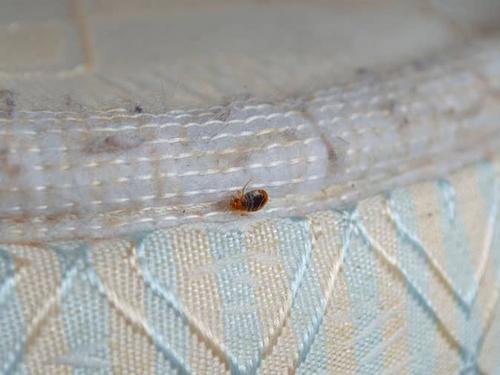Natural Barriers Against Mosquitoes In Colorado
Colorado Summers Bring Warm Weather - And Mosquitoes
When summer rolls into Colorado, so do the mosquitoes. Long evenings on the porch or carefree afternoons in the yard can quickly turn into constant swatting and itchy bites. If you live in areas like Denver, Colorado Springs, or Fort Collins, you’re probably already familiar with the late spring and summer surge. Warm temperatures, standing water, and shaded yards create the perfect backdrop for mosquitoes to settle in.
While most people reach for sprays and foggers, not everyone wants to add more chemicals to their surroundings. That’s where natural barriers come into play. These can be simple changes or additions to your outdoor space that help keep mosquitoes away in a more eco-conscious way. Learning how mosquitoes behave can also help you know where they’re likely to appear and how to stop them.

Why Mosquitoes Keep Showing Up in Your Yard
Mosquitoes are most active early in the morning and in the evening when temperatures are cooler. These biting summer pests are drawn to carbon dioxide and body heat, so the more people and pets in your yard, the more mosquitoes you’re likely to see. They thrive in still, humid areas—especially near shrubs, under decks, and anywhere standing water collects.
Adult females don’t need much water to start reproducing—just a puddle or a bottle cap will do. Larvae grow quickly in stagnant water, making decorative fountains, birdbaths, or forgotten containers ideal egg laying sites.
During the hottest part of the day, mosquitoes rest in cooler, shaded spots. You’ll often find them hiding in:
- Tall grass and overgrown weeds
- Shady areas beneath decks or porches
- Outdoor sheds, garages, or dog houses
- Thick shrubs or trees with dense foliage
Knowing where mosquitoes live and how they behave is the first step to getting ahead of them.
Plant-Based Barriers
Certain plants naturally repel mosquitoes with their strong scents. While they won’t eliminate all mosquito activity, they can help reduce it, especially when planted around patios, windows, or entryways. Bonus: they also look and smell great.
Here are a few options that thrive in Colorado during summer:
- Citronella
Known for its lemony scent, citronella helps mask the human scents mosquitoes use to find you. Pictured above, it's a popular choice for patio pots and garden borders. - Lavender
This hardy, drought-tolerant plant emits an aroma that’s delightful to humans but irritating to mosquitoes. Its purple blooms also attract pollinators, adding a dual benefit to your garden. - Marigolds
With their strong scent and vibrant blooms, marigolds are easy to grow and help deter mosquitoes and other insects. They can be planted in borders or pots and are known for their pest-repelling qualities. - Peppermint
The sharp scent of peppermint can help deter mosquitoes. Crushed leaves can also be rubbed on the skin for a light, natural barrier when outdoors. - Basil
This herb enhances your culinary creations and repels mosquitoes. Placing pots of basil around your outdoor areas can keep unwanted bugs at bay while providing fresh ingredients for your meals.
Even if you don’t have room for a full garden, a few pots or vertical planters near high-traffic zones can make a difference. Try placing them near seating areas, doorways, or windows to help create a gentle buffer zone.
Water Management Strategies
If mosquitoes are showing up again and again in your yard, chances are there's water somewhere nearby. These pests don’t need much, just a shallow, still patch, to start reproducing. That’s why water management is one of the most effective mosquito control strategies in Colorado during the summer months.
Take a walk around your yard and look for anything collecting water. Some common culprits include:
- Buckets, wheelbarrows, or old flower pots
- Clogged gutters
- Kiddie pools or sandbox covers
- Birdbaths and pet bowls
- Tarps, tires, and yard toys
Here are a few ways to minimize mosquito breeding spots:
- Empty and scrub birdbaths weekly
- Store containers upside down when not in use
- Refresh water in pet bowls and fountains regularly
- Use pumps to keep decorative water features moving
- Clear out gutters and drainage areas after storms
Pools and hot tubs should be chlorinated and maintained. And don’t overlook low spots in the lawn—Colorado storms can leave puddles that stick around just long enough to invite mosquitoes in.
Creating Natural Repellent Areas
Once you’ve addressed standing water, you can take the next step: making your yard a place mosquitoes don’t want to hang around. A few small updates can transform your patio or garden into a more mosquito-resistant space.
Try adding:
- Mesh screens to patios and gazebos
- Shade sails or pop-up tents with mosquito netting
- Outdoor fans, which disrupt mosquitoes’ flight patterns
- Repellent coils or incense, especially in corners or seating areas
- Bat houses, if appropriate, to attract natural mosquito predators
One Denver homeowner turned their pergola into a mosquito-light zone by adding netted curtains and citronella torches—simple upgrades that made summer dinners more comfortable.
The key here is consistency. To maintain results, keep fans and screens in good repair and refresh repellents as needed.
Keeping Your Yard Mosquito-Free
Once you’ve handled plants, water, and setup, it’s all about staying on top of things. Natural mosquito control doesn’t work well if it’s a one-time effort. With summer temperatures sticking around in Colorado through early fall, it helps to have a plan to keep mosquitoes from settling back into your yard.
Build a simple routine that includes things like:
- Weekly checks for standing water
- Regular trimming of trees, hedges, and tall grass
- Refreshing or rearranging plant-based mosquito barriers as needed
- Inspecting screens, fan setups, and shaded areas for maintenance
Having a clear plan makes it easier to keep up with things. It also makes spotting changes or new mosquito hotspots quicker.
Some yards may still need extra help, especially if mosquitoes are a consistent problem. In those cases, working with local mosquito control experts is the smart next step. Professionals can identify hidden trouble spots and use treatments that support the natural barriers you’ve already built.
A Smarter Approach to Mosquito Season in Colorado
Living in Colorado means enjoying summer sunshine, but it also brings in the mosquitoes. By making a few thoughtful updates like including specific plants, managing standing water, using physical barriers, and creating repellent zones, you turn your home into a place that’s less inviting to these pests.
It’s not about making your yard perfect. It’s about creating an environment where mosquitoes struggle to settle in. Every small change adds up, especially when done early in the season. When your yard feels more comfortable and you’re not constantly reaching for bug spray, it’s a sign that what you’re doing is working. Keep those habits going strong all summer long.
If you're ready to take back your yard from biting pests, natural methods are a great place to start. But when mosquitoes continue to be a problem, bringing in extra support can make all the difference. Learn how EnviroPest can help with effective mosquito control in Colorado so you can enjoy more time outside without the constant buzzing and biting.

Testimonials
GETTING STARTED IS AS EASY AS 1-2-3
REQUEST FREE ESTIMATE
Pest Solutions For Homes & Businesses
We understand that pest problems can be unsettling and frustrating, but the solution shouldn't be. For over 55 years, we've been helping folks right here in Colorado take care of ants, spiders, mice, mosquitoes, wasps, bed bugs, bats and most other creepy crawly things. We'll get there fast to solve the issue quickly and affordably - Guaranteed.



